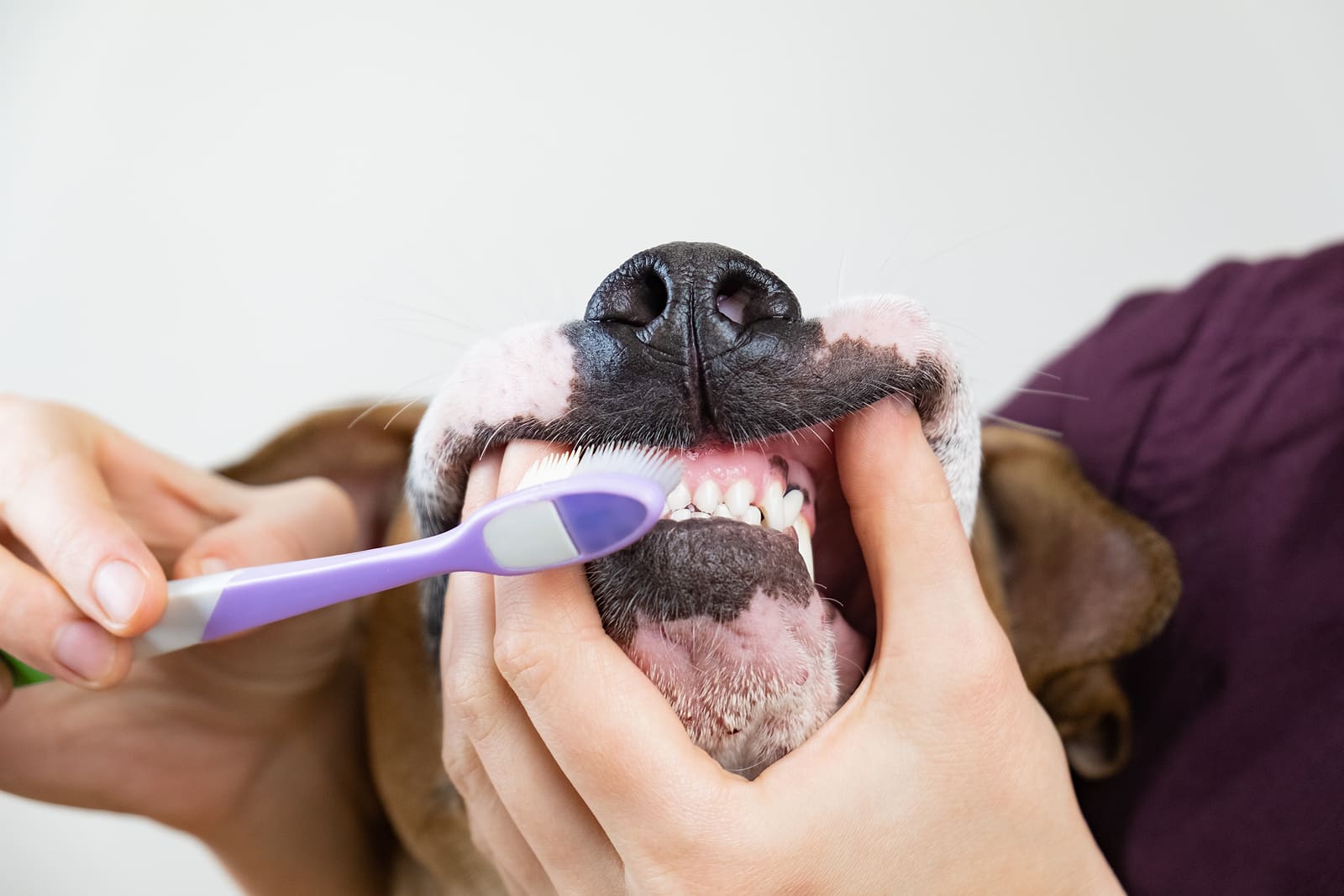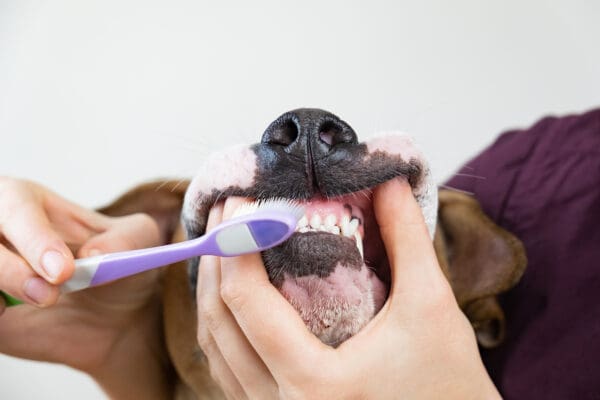We all love our pets and make sure they get good food and lots of cuddles. But how often do we think about their teeth? Just like us, pets need good oral care to prevent dental problems like bad breath, gum disease, and tooth loss. Here is some info for pet owners on what they can do and how veterinarians can help, too.
Pet Owner’s Role in Pet Dental Care
You’re the first line of defense for your pet’s dental health. You really should brush your pet’s teeth every day. Use a pet toothpaste and toothbrush, and start slowly (and when they are young, if possible) to make it a fun experience. Even a few minutes a day can help significantly in removing plaque and preventing tartar from building up.
Besides brushing, try giving them dental chews or special dental kibble. These are made to help clean their teeth as they chew. Look for products with the Veterinary Oral Health Council (VOHC) seal, which means they’re effective. Get used to gently lifting your pet’s lips to check their mouth. Look for red or swollen gums, discolored teeth, excessive drooling, or unusual odors. Any of these could mean trouble. Also, pay attention to their behavior. If they stop eating, refuse to chew toys, paw at their mouth, or become grumpy when you touch their face, they might be in pain.
In the Cascade Kennels Grooming Department, we offer PlaqClnz®. This is an easy-to-use, zinc-based pet oral health care system that treats and helps prevent bad breath, plaque, tartar, and gingivitis. Used regularly, it will help to keep your pet’s breath fresh and protect against the early stages of periodontal disease. Our Salon administers the entire three-step system for $15. Give us a call to set up an appointment today, 425-483-9333!
Your Veterinarian’s Role in Pet Dental Care
Even with great home care, your vet’s professional dental care is still essential. During your pet’s yearly check-ups, your veterinarian will examine their teeth and gums. They can spot early signs of dental disease that you might miss.
Often, a thorough dental cleaning under anesthesia is necessary. This lets your vet clean every tooth, even below the gum line, where most problems start. They can also take X-rays to see the tooth roots and jawbone, pull out bad teeth, and fix other mouth issues. Anesthesia is crucial for a safe and thorough cleaning because pets often struggle to sit still during the procedure. If your pet has serious dental problems, your veterinarian can recommend extractions or root canals to alleviate pain and prevent further complications. Remember, your vet is your best source for personalized advice on home dental care, product recommendations, and understanding what your pet specifically needs for their teeth.
What Happens if You Do Nothing?
Ignoring your pet’s dental health can lead to many painful and even life-threatening issues. Dental disease causes a lot of pain—imagine having a constant toothache! This can cause them to eat less, become irritable, and not enjoy life as much.
Periodontal disease is the most common dental problem in pets. It’s when the tissues around the teeth get inflamed and infected. If not treated, it can lead to tooth loss. Even worse, bacteria from bad dental infections can get into their bloodstream and travel to organs like the heart, kidneys, and liver, causing serious and sometimes deadly conditions. Fixing advanced dental disease is also much more expensive than preventing it. Neglecting their teeth can mean many tooth extractions, special surgeries, and long-term medications. And finally, while it may seem minor, persistent bad breath (halitosis) is a strong indication of excessive bacteria in the mouth, suggesting that your pet requires professional dental care.
Takeaways for Healthy Pet Teeth:
- Start Early: Get your pet used to dental care when they’re young.
- Be Consistent: Regular brushing and dental chews are more effective than doing them occasionally.
- Keep It Positive: Praise and treats make dental care a good experience.
- Don’t Skip Vet Checks: Yearly exams are crucial for catching problems early.
- Ask Questions: If you’re not sure about something, just ask your vet!
Taking care of your pet’s teeth is a great way to help them live a happy, long life. By doing your part at home and working closely with your veterinarian, you can help your furry friend maintain a healthy smile for years to come.




